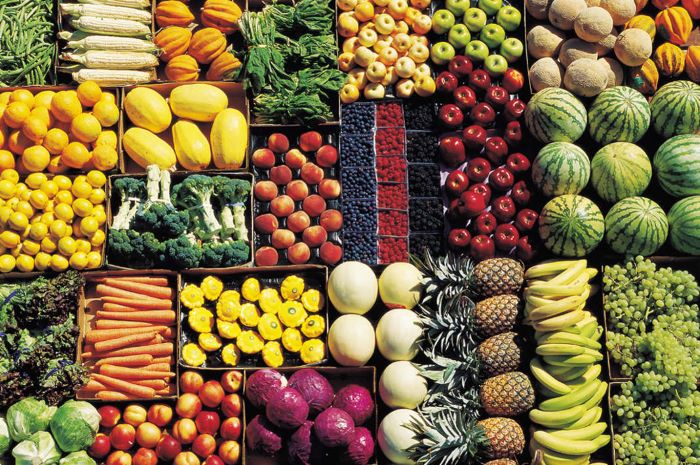The Global Panel on Agriculture and Food Systems for Nutrition is today announcing the launch of its new report, Future Food Systems: For people, our planet, and prosperity.
The report, produced by an independent international team of leading experts, makes concrete recommendations on the practical next steps which need to be taken to begin a process of food systems transition to protect human and planetary health. It calls for urgent action, by leaders and decision makers across the world, to transform food systems so that they deliver sustainable, healthy diets to all.
The product of two years’ work, this report distils the latest scientific and policy expertise on transforming food systems. It spells out who needs to do what in governments, the private sector, development partners, civil society, and citizens, so everyone has access to available and affordable healthy diets, that are desirable and delivered sustainably, within planetary boundaries. The report is aimed primarily at decision makers in low- and middle-income countries, but they alone cannot turn global challenges around. In a highly interconnected world, high-income countries also need to act without delay, particularly where their own decisions have world-wide impacts.
Global Panel Co-Chair and former President of Ghana, H.E John Kufuor, emphasised how “Our food systems are fragile, are damaging our environment, and causing malnutrition, ill health and premature death.” In commending this report to governments worldwide he added “The situation looks bleak, but the Global Panel believes that the situation can be reversed with renewed political will, sustained commitment, and leadership.”
An estimated 3 billion people today cannot afford healthy diets. More than 200 million children under 5 face a life with insufficient food. Sub-optimal diets are also creating escalating pressure on healthcare systems. At least 11 million people die every year from diet-related illnesses, including stroke, cardiovascular disease, and diabetes.
Food systems are also a key contributor to environmental damage. At the same time, they are threatened by the environmental damage to which they themselves are contributing. The agricultural innovation that has made incredible advancements in food production, now needs to re-articulate the 20th century vision of feeding the population into one that nourishes people.
The COVID-19 pandemic has also exposed systemic weaknesses and fragility in food systems, which were already increasingly threatened by climate change and worsening environmental degradation.
In countries across the world, the cost to health, nutrition and the natural environment from failing food systems is estimated to be 12 trillion dollars a year and rising.
The report, funded by the Foreign, Commonwealth and Development Office (FCDO), sets out how to turn the situation around, to promote and protect human and planetary health, jobs and prosperity as well as preventing intergenerational cycles of poverty and inequality.
FCDO Parliamentary Under-Secretary of State, Wendy Morton MP, welcomed the report. Stating that “Poor quality diets are a key driver behind all forms of malnutrition and the biggest contributor to the global disease burden”. She added “the UK remains committed to addressing poor nutrition and the need to build back better, post Covid-19, and ensure food systems are delivering triple wins for people, the planet, and prosperity”.
Our food systems, and the diets they deliver, are causing substantial harm to our health and the planet, and lack resilience to shocks, whether from pandemics or climate change. Grounded in reality the report identifies the difficult trade-offs, policy distortions and the costs of transition. While it recognises the cost of ensuring that every individual is able to eat a healthy diet every day will be significant, the report shows that the costs of not acting will be immeasurably higher. More importantly it describes the benefits to decisive action in terms of millions of new jobs, a reduced economic burden of ill health and reduced costs to health systems, and substantial gains from avoiding global damage from climate change.
Special Envoy for the 2021 Food Systems Summit and Global Panel member, Dr Agnes Kalibata, said “The 2021 UN Food Systems Summit, is a key opportunity, to take the recommendations in this report forward, to agree inter-governmental mechanisms, to get scientific consensus and to listen to the voices of those in low- and middle-income countries”.









Great publication.
Comments are closed.